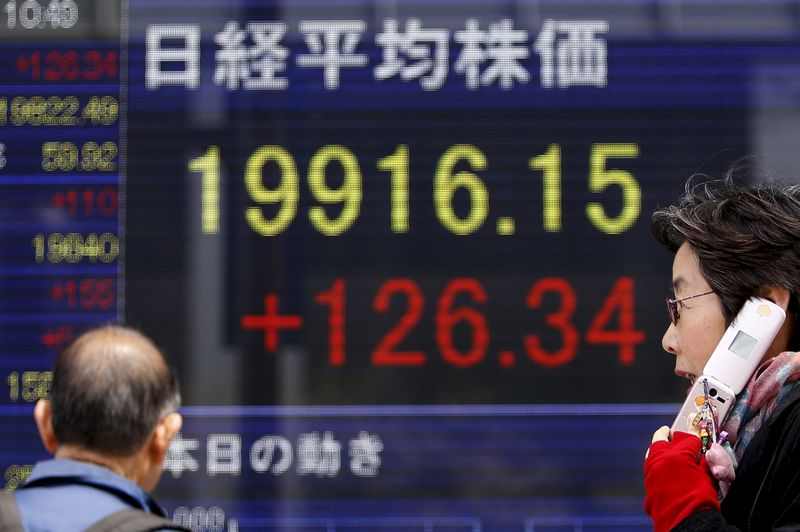© Reuters.
Investing.com — Most Asian stocks surged on Monday as a drop in U.S. inflation ramped up hopes for a less hawkish Federal Reserve, while data showing improving sentiment towards the Japanese economy put the Nikkei index back at 33-year highs.
Data on Friday had shown that the Fed’s fell more than expected in May, triggering a rally across most risk-driven assets that spilled over into Asian trade this week.
But whether the rally will keep its momentum remains to be seen, ahead of a slew of economic readings and central bank signals this week. Economic readings on Monday also painted a mixed picture of Asia’s largest economies.
Nikkei rallies as business sentiment improves, but factory activity shrinks
Japan’s index jumped 1.4% and the broader added 1.3%, with both indexes trading close to 33-year highs.
A showed that business sentiment in the country improved through the second quarter, indicating that the economy was recovering as more firms vowed to increase capital expenditure.
The reading factored into increasing optimism over Japan’s economic prospects this year, which, coupled with a dovish BOJ, have spurred sharp gains in Japanese stocks over the past two months.
But a separate survey also reiterated that shrank in June, indicating that the country’s biggest economic drivers were still under pressure.
Chinese stocks rise past mixed factory data
China’s and indexes rose about 1.2% each, as a showed that China’s manufacturing sector grew more than expected in June. Hong Kong’s index added 1.9% on strength in locally listed Chinese stocks.
But the reading slowed from the prior month, indicating that some spots of resilience in the Chinese economy may be losing their strength.
Monday’s reading also came after an showed last week that China’s factory sector shrank for a third straight month in June.
Fed, central bank cues remain in focus
Broader Asian markets advanced on Monday, with a slew of regional and U.S. economic cues due this week.
Australia’s added 0.5%, lagging its regional peers ahead of a on Tuesday, which analysts expect to result in a 25 basis point rate hike. The also shrank in June, data showed on Monday.
South Korea’s added 1.4%, while the index rose 0.9%.
More cues on U.S. monetary policy remained in focus for the week, ahead of the . for June are also due this Friday.
Read the full article here












